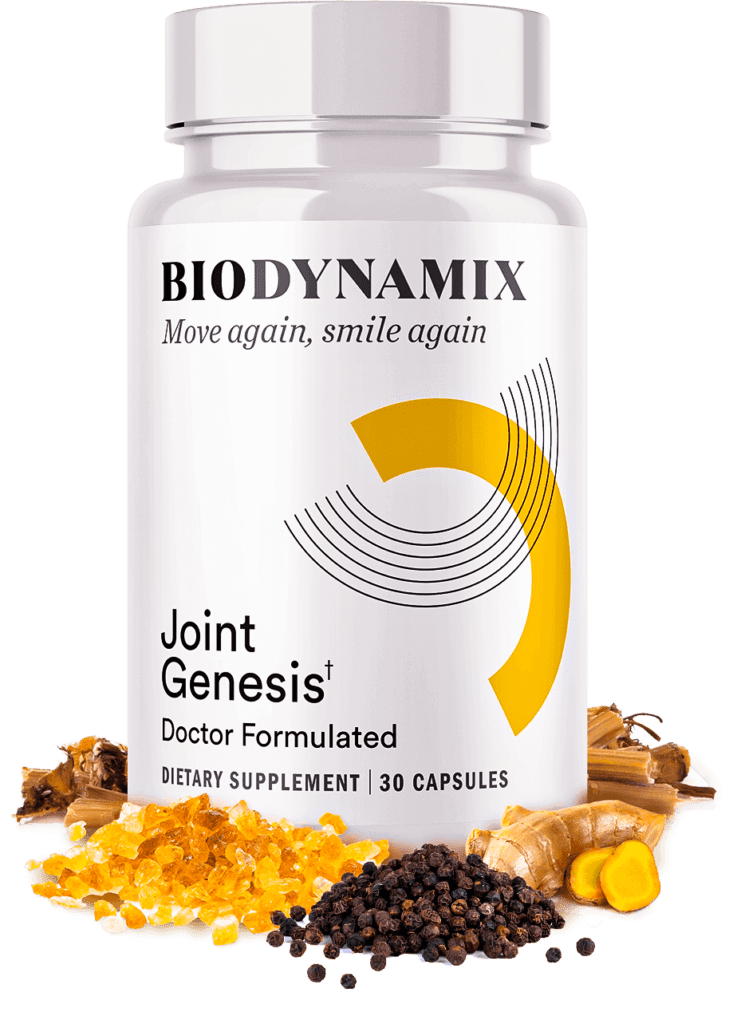Joint health is essential for mobility and quality of life, especially as we age. Diet plays a crucial role in maintaining and protecting joints, helping to prevent inflammation and degeneration. In this article, we will explore how a balanced diet can positively influence joint health, highlighting foods and supplements that promote joint integrity, as well as dietary habits to avoid to prevent joint problems.

📜Contents
- 1 Anti-inflammatory Foods for Joints 📌
- 2 The Role of Collagen in Joint Health 🤔
- 3 Impact of Antioxidants on Joint Protection 🛡️
- 4 Mediterranean Diet and Joint Health 🐟
- 5 Effects of Overweight and Obesity on Joints 🤒
- 6 Joints Health Supplement 🍃
- 7 Foods to Avoid to Prevent Joint Inflammation 🍩
- 8 Importance of Hydration for Joints Health 💧
- 9 Conclusion 💥
- 10 Also Read – More Posts 💡
Anti-inflammatory Foods for Joints 📌
Chronic inflammation is one of the main culprits when it comes to joint problems, such as rheumatoid arthritis. Fortunately, diet can be a powerful ally in fighting this inflammation. Foods rich in omega-3s, such as fatty fish (salmon, sardines, and tuna), have proven anti-inflammatory properties. They help reduce the production of molecules and substances that trigger inflammation in the body.
Additionally, berries like strawberries, blueberries, and raspberries are rich in antioxidants and anti-inflammatory compounds that can protect joints from cellular damage.Leafy green vegetables like spinach and kale contain vitamin E, another potent antioxidant that plays a crucial role in protecting joints. Incorporating these foods into your daily diet can significantly reduce the symptoms of inflammatory conditions, providing natural relief and better quality of life.

The Role of Collagen in Joint Health 🤔
Collagen is a fundamental protein for the integrity and elasticity of cartilage, the tissue that covers the ends of bones within the joints. With aging, the body’s natural production of collagen decreases, leading to cartilage wear and the onset of joint pain and problems, such as osteoarthritis.
To maintain joint health, it is essential to consume foods rich in collagen or that stimulate its production. Bone broth, made from the prolonged boiling of animal bones, is an excellent natural source of collagen.
Additionally, hydrolyzed collagen supplements can be effective in improving cartilage density and reducing joint pain. Consuming foods that contain vitamin C, such as citrus fruits and green vegetables, is also important, as this vitamin is necessary for collagen synthesis in the body.

Impact of Antioxidants on Joint Protection 🛡️
- Antioxidants are substances that combat oxidative stress, a process that can damage joint cells and contribute to the development of joint diseases. Foods rich in antioxidants, such as citrus fruits (oranges, lemons) and green tea, help neutralize free radicals, unstable molecules that can damage healthy joint cells.
- Scientific studies show that a diet rich in antioxidants is associated with a lower incidence of joint diseases and a reduction in symptoms in people already affected by these conditions. Incorporating foods rich in vitamin C, vitamin E, and polyphenols into your diet is an effective strategy to protect joints in the long term, preventing wear and improving joint function.

Mediterranean Diet and Joint Health 🐟
The Mediterranean diet is often recommended by health experts as one of the best dietary approaches for preventing chronic diseases, including those that affect the joints.
Rich in olive oil, fish, legumes, fruits, and vegetables, this diet is naturally anti-inflammatory and full of essential nutrients for joint health. Olive oil, for example, contains oleocanthal, a compound with anti-inflammatory properties similar to those of nonsteroidal anti-inflammatory drugs (NSAIDs).
The regular inclusion of omega-3-rich fish, as well as nuts and seeds, also contributes to reducing inflammation. Compared to other diets, the Mediterranean diet has proven effective in reducing joint pain and improving mobility, making it an excellent choice for those looking to keep their joints healthy and functional over time.

Effects of Overweight and Obesity on Joints 🤒
Excess weight is a significant risk factor for developing joint problems, especially in weight-bearing joints like the knees and hips. Obesity increases the pressure on these joints, accelerating cartilage wear and contributing to conditions such as osteoarthritis. To relieve this strain on the joints, it is essential to adopt a balanced diet that promotes healthy weight loss.
Foods rich in fiber, such as vegetables, fruits, and whole grains, help increase satiety and control appetite. Reducing the consumption of empty calories found in processed foods and refined sugars is another important strategy. Even modest weight loss can have a significant impact on reducing pain and improving joint function.

Joints Health Supplement 🍃
Joint Genesis™
Studies indicate that combining supplements with a balanced diet can offer additional benefits in protecting joints. When choosing supplements, it’s important to seek quality products from reliable sources, such as Joint Genesis™.
Joint Genesis™ has a 100% natural, patented formula and is the first in the world to combine four research-backed joint support nutrients with Mobilee®, an advanced and patented ingredient that has been proven to multiply hyaluronan molecules in synovial fluid by a factor of 10.
This blend of cutting-edge ingredients promotes joint health in an innovative way: rehydrating and thickening the naturally gelatinous synovial fluid in our joints.
>> Learn More About Joint Genesis <<
Foods to Avoid to Prevent Joint Inflammation 🍩
While some foods can help reduce inflammation, others can exacerbate it, contributing to worsening joint problems. Processed foods, rich in refined sugars and trans fats, are at the top of the list of those to avoid. These foods not only promote inflammation but can also lead to weight gain, further increasing the pressure on the joints. Replacing these foods with healthier alternatives is crucial for preventing inflammation.
For example, swapping refined oils for olive oil and sugary snacks for fresh fruits can make a significant difference in joint health. Maintaining a balanced diet, rich in anti-inflammatory foods and low in processed foods, is key to keeping your joints in good condition throughout life.

Importance of Hydration for Joints Health 💧
Hydration is often underestimated when it comes to joint health, but it plays a vital role. Water is essential for joint lubrication as it helps form synovial fluid, which reduces friction between the ends of bones and facilitates movement.
Staying well-hydrated throughout the day can help preserve joint integrity, preventing excessive wear. To ensure proper hydration, it is recommended to drink water regularly, even before feeling thirsty, and to increase fluid intake in hot climates or during physical activity. Small changes, such as always carrying a water bottle, can make a big difference in joint health and mobility.

Conclusion 💥
Maintaining joint health through diet is an effective and accessible strategy for preventing pain and inflammation, while also promoting a better quality of life.
Incorporating anti-inflammatory foods, rich in collagen and antioxidants, along with a balanced diet like the Mediterranean, can make a significant difference in protecting the joints. Avoiding foods that exacerbate inflammation and staying hydrated are essential practices to ensure healthy and functional joints throughout life.
Also Read – More Posts 💡






[…] Joints Health: Nutrition, Tips, Care, and Natural Supplements […]
[…] Joints Health: Nutrition, Tips, Care, and Natural Supplements […]